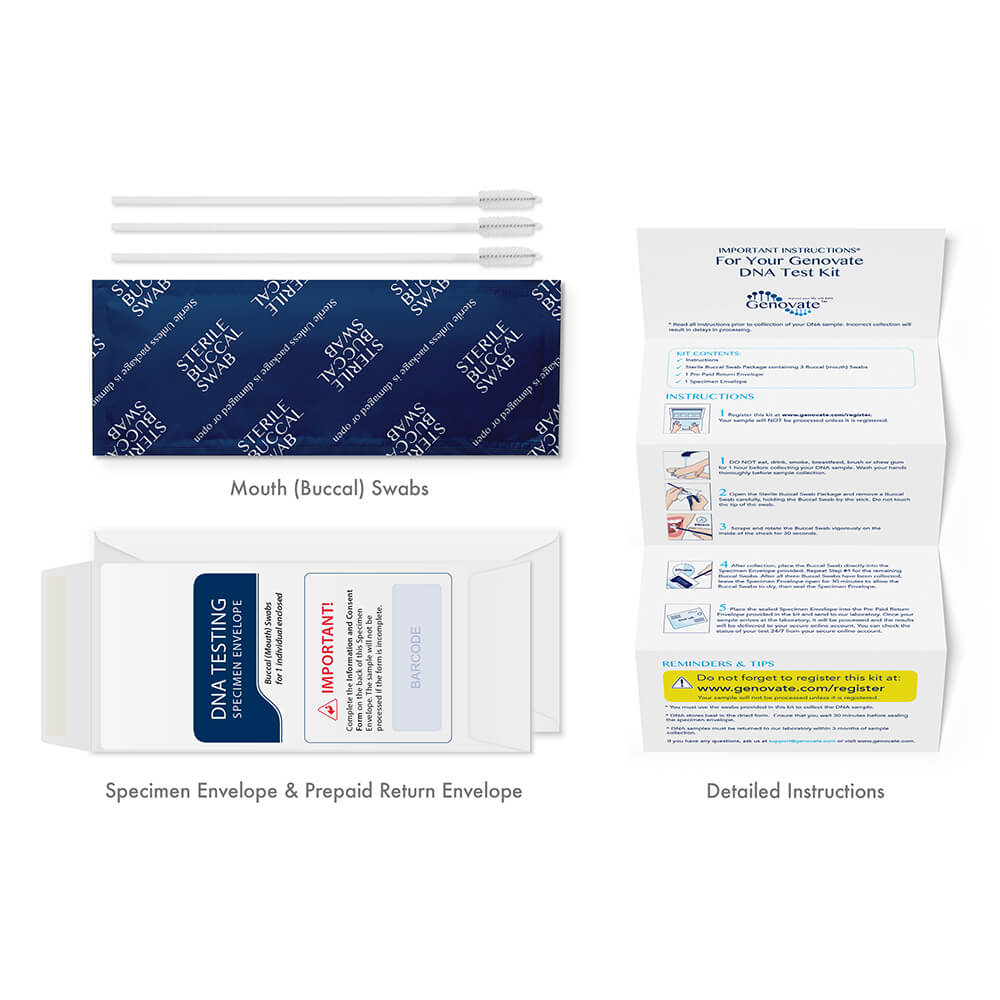What is warfarin?
Warfarin is a common anticoagulant prescribed to prevent the formation of blood clots (thrombosis) and their migration elsewhere in the body (thromboembolism). Warfarin is useful for long-term anticoagulant treatment. It is often used to treat people at a high risk of thrombosis, due to genetics, artificial heart valves, an abnormal heart rhythm, surgery or have previously suffered from a blood clot.
Determining the correct warfarin dose
Every individual has a different warfarin sensitivity and requires a slightly differing warfarin dose to establish an effective and safe anticoagulant effect. Sometimes it can take months to determine the correct dose. Warfarin sensitivity is influenced by:
- Genetic variation
- Age
- Height & weight
- Diet
- Ethnicity
- Other medications
This genetic analysis detects variations across four genes (VKORC1, CYP2C9, GGCX and CYP4F2), which explain a large proportion of warfarin sensitivity. The results of this analysis can be used in the warfarin dosing algorithm at WarfarinDosing.org to significantly reduce the “trial and error” approach typically taken to achieve an optimum warfarin dose.
How does warfarin work?
Warfarin decreases blood coagulation by inhibiting the vitamin K epoxide reductase, encoded by the VKORC1 gene. Vitamin K1 plays a major role in blood clotting and is often used to prevent “blood thinning”. The VKORC1 enzyme recycles inactive vitamin K1 after it has helped to activate several proteins involved in clotting. Warfarin prevents this vitamin K1 recycling, thereby depleting active vitamin K1.
Warfarin activity must be monitored carefully to ensure that an adequate and safe dose is taken each day. It is monitored by blood testing to determine the international normalized ratio (INR). If the INR is too high, there is an increased risk of abnormal bleeding (haemorrhage). If the INR is too low, it indicates that the dose is insufficient to protect against blood clots.
What genetic variants affect warfarin sensitivity?
Multiple genetic differences across four genes affect the dose required to achieve a stable INR:
- VKORC1 – encodes a blood clotting enzyme (the target of warfarin)
- CYP2C9 – encodes the primary metabolizer of warfarin
- GGCX – encodes a blood clotting enzyme
- CYP4F2 – encodes an enzyme that breaks down active vitamin K1
How are the genetic variants inherited?
The VKORC1, CYP2C9, GGCX and CYP4F2 genes are all located on autosomal chromosomes and we each inherit two copies of all the genes on the autosomal chromosomes. Therefore we can inherit two normal copies of a gene (homozygous normal), or two copies that carry the same genetic variation (homozygous variant), or one normal copy and one variant copy (heterozygous). This means that we can inherit several different combinations of the VKORC1, CYP2C9, GGCX and CYP4F2 genes and each combination affects the required warfarin dosage.
DNA testing for warfarin sensitvity
A simple DNA test can be completed to find out which versions of VKORC1, CYP2C9, GGCX and CYP4F2 genes were inherited. This test examines eleven markers across the four genes. The results of this analysis significantly reduce the time taken to achieve a safe and stable level of blood anticoagulation, and reduce the risks of potentially life-threatening problems.
The genetic information obtained from this DNA test, along with patient information (including age, gender, height, weight, race, and current medications), is entered into an online table provided by WarfarinDosing.org. WarfarinDosing.org uses this data in an algorithm to determine the initial Warfarin dose and subsequent daily doses required to achieve the target international normalized ratio (INR).
Four Easy Steps
Step 1: Order test kit online
Step 2: Collect DNA sample using a painless mouth swab, and mail to the lab in the provided return envelope
Step 3: Receive your results online
Step 4: Enter your results online at WarfarinDosing.org.
Click here for more details and to watch our explanatory video.
WarfarinDosing.org uses this data in an algorithm to determine the initial Warfarin dose and subsequent daily doses required to achieve the target international normalized ratio (INR). The warfarindosing.org website is provided by the Warfarin Dose Refinement (DR) Collaboration and IWPC (a group of international collaborations of biostatisticians, geneticists, pharmacists, and physicians who share anonymous data to improve warfarin dosing). WarfarinDosing.org is an independent website and is not under the control of this laboratory. The algorithm provided by WarfarinDosing.org is continually updated to ensure it provides an accurate and safe warfarin dose estimate. However, our laboratory holds no responsibility for the content and availability of WarfarinDosing.org.
| Benefits |
|---|
| ✓ Reduce the time taken to find your optimum warfarin dose |
| ✓ Avoid the health risks associated with a typical “trial & error” approach for warfarin dosing |
| ✓ Painless buccal (mouth) swab sample collection |
| ✓ All tests are run 2x for absolute accuracy |
| ✓ Quickly collect samples in the privacy of your own home |
| ✓ 24/7 online test status check |
| ✓ Discreet online results option available |
| ✓ No age limit |
| ✓ State-of-the-art accredited testing laboratory |
Related products
DNA Gift Ideas
Optimize your skin health based on your genes.
Health & Disease
Understand your genetic risk of type 2 diabetes.
Health & Disease
Determine whether you carry the APOE genetic variant linked to cardiovascular disease.
Health & Disease
Understand your genetic risk of cardiovascular disease.
Health & Disease
Determine your genetic risk for dangerous blood clots.
Health & Disease
Determine if you carry the genes linked to iron overload.
Health & Disease
Determine your genetic risk of osteoporosis.
Health & Disease
Find out if aspirin is the best treatment for you.





















